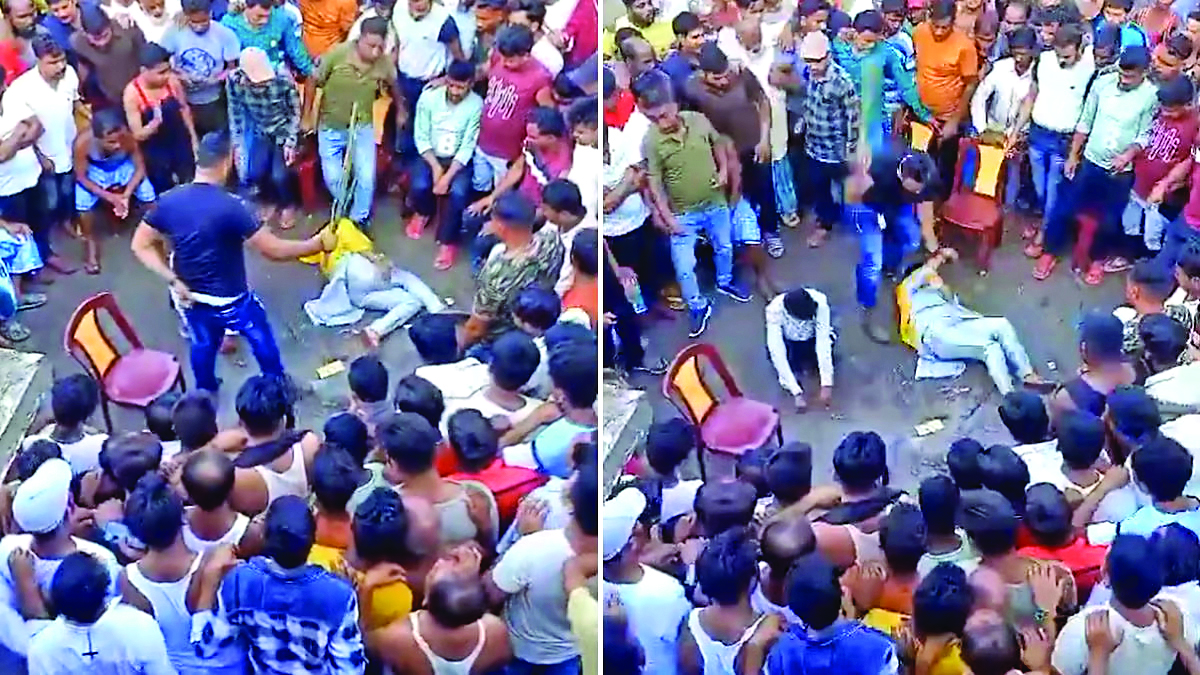In the sad practice of hitting the headlines for the wrong reasons, West Bengal is back in the news, once again for a gender crime—this time for the public flogging of a woman by a leader from the state’s ruling Trinamool Congress in an area called Chopra in Uttar Dinajpur district. TMC leader Tajmul, alias JCB, was seen punishing a woman in public for the “crime” of indulging in an extra-marital affair.
The horrific video of the woman writhing on the ground as she is flogged by JCB went viral on social media, leading to public pressure on the Mamata Banerjee government, which arrested him. Coming soon after the blood-curdling revelations about Sandeshkhali, where local women alleged that they endured sexual violence by ruling party leaders, such an incident is extremely problematic. Also problematic is the complete silence on the matter by the so-called liberals, intellectuals and political parties just because the incident has taken place in a state governed by an Opposition party.
While an arrest has been made in the case, the local MLA, Hamidul Rahaman has gone on record to say that in a “Muslim rashtra”—a Muslim country—there exist some rules, but in this case the process of dispensing justice became a bit excessive. The question is, from which history book has the lawmaker discovered that West Bengal is a “Muslim rashtra” with its own set of civil codes? Democratic India, of which West Bengal is a part, is certainly not Afghanistan, where the medieval practice of stoning or flogging women in public by the Taliban is common. The world’s largest democracy has in place a proper law and order system. It has a fully-functioning judiciary, so “justice” cannot be dispensed by kangaroo courts even in the name of personal law. In fact, if Sharia, or Muslim personal law is the justification for the formation of such “kangaroo courts”, then it is time for the country to have a Uniform Civil Code. As it was seen in the case of triple talaq, personal laws cannot protect women. The country needs secular laws that guide the lives of all communities. UCC is needed for gender justice and that is how it should be projected, so that all political parties can come together to support it, without making it about hurting one particular community.
Additionally, that an elected legislator of a state Assembly can speak openly about “Muslim rashtra”, raises several questions about the kind of demographic changes that are taking place in Bengal. While only the next census will tell us what the proportion of the minority population in Bengal is, but even if it exceeds 50% in certain districts, that cannot be justification for having kangaroo courts dispensing medieval justice on the population. How much longer before such kangaroo justice starts imposing itself on other communities just because one community becomes a majority in a district? For that matter, how many women in the minority community are enduring such medieval justice, suffering in silence even now?
It’s a matter of shame that there is pin-drop silence in the Opposition camp on what happened in Chopra, and before that in Sandeshkhali. The same people who were in the forefront of supporting the women wrestlers who were sitting in protest in Delhi, have turned a blind eye to the suffering of the poor, uneducated, rural women of Bengal. No amount of political spin will be able to cover up the fact that something is terribly wrong in that state. This is not expected from a state governed by a woman Chief Minister, Mamata Banerjee. Her party feels proud that it has sent 11 feisty women to the Lok Sabha—38% of its 29 MPs in 2024. This apparently sets West Bengal apart as a women-friendly state which allows space for women to grow and realise their potential. But is there any space for the poor and oppressed women of Bengal in the universe in which these political leaders dwell? Women’s emancipation is complete only when women at the grassroots feel empowered, not when they are flogged publicly, or exploited and harassed. It is time to discuss the plight of Bengal’s women—in Parliament. It is time to ask Mamata Banerjee and her women MPs what they are doing to empower their oppressed sisters.







